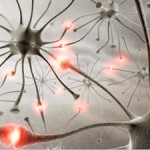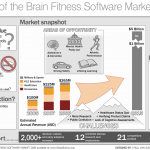Update: 15 FAQs on Neuroplasticity / Brain Plasticity
Here you have the October edition of our monthly newsletter covering cognitive health and brain fitness topics.
We recently run an online survey among subscribers of our monthly eNewsletter, and over 500 people  said we have helped them make better personal or professional decisions on how to maintain and improve brain fitness. Respondents also had many good questions to ask, so I have selected 15 common ones, paraphrased/ synthesized them below, and answered them by linking to our most relevant posts and resources. I hope you enjoy the FAQ session.
said we have helped them make better personal or professional decisions on how to maintain and improve brain fitness. Respondents also had many good questions to ask, so I have selected 15 common ones, paraphrased/ synthesized them below, and answered them by linking to our most relevant posts and resources. I hope you enjoy the FAQ session.
Q: I teach a brain fitness class at my library/ senior center/ school, using much of your info. Can you share some of your presentations?
A: Yes, we have just decided to share, using a Creative Commons Attribution No Derivatives License, the full presentation of my recent book talk at New York Public Library (opens video in YouTube). As long as you give credit to SharpBrains and don’t modify it, you are free to use the presentation you can view and download HERE.
Q: What exactly does neuroplasticity  mean, and why is it so important for education and health?
mean, and why is it so important for education and health?
A: Start by reading how learning changes your brain.
Q. Is this only relevant for older adults? Can I also apply it in the workplace (I am 47)
A. I strongly suspect you do have a human brain, so you may benefit from these Ten Habits of Highly Effective Brains. Further, HR departments would do well to start paying more attention to Cognitive Fitness and the Mature Workforce trends.
Q. I read so many conflicting things I don’t know where to start.
A. You are not alone. We should all be aware that It is Not Only Cars That Deserve Good Maintenance: Brain Care 101.
Q. How can my organization deliver brain fitness activities as a community service?
A. These articles will provide good guidelines and ideas: Retooling Use It or Lose It , and Public Libraries: Community-Based Health Clubs for the Brain.
Q. Everyone seems obsessed with brain games. What about meditation?
A. Check out Yes, You Can Build Willpower, and Mindfulness Meditation in Schools.
Q. Are software-based cognitive interventions effective?
A. As a category, it certainly seems so, as long as we ask the right questions, For Whom, For What?. For example, did you see this Science paper on how Cognitive Training Can Influence Dopamine System?.
Q. What about the trade-off between time invested vs benefits realized.
A. Efficiency and replicability of cognitive and brain-based outcomes seem to be, in fact, the strongest points of structured cognitive interventions. They seem to maximize the Cognitive Value of your Mental Workout.
Q. It sometimes looks like the whole field came out of nowhere, due to Nintendo Brain Age’s success, so we can’t be talking about something serious.
A: Nintendo did indeed create consumer awareness (for a product with little evidence) but “brain training” has solid roots in neuropsychology and cognitive neuroscience, as you can read in our interview with Elkhonon Goldberg.
Q. What about neurofeedback?
A. After years of much clinical use and little solid evidence, several important trials have been published since 2009, showing how neurofeedback can help diagnose and treat ADHD patients, for example.
Q. How can one improve memory?
A. Well, the answer deserves a whole book, but we can offer some Tips to Improve Memory including Sleep, Practice and Testing.
Q. How can I  choose one among the number of products making memory and brain claims?
choose one among the number of products making memory and brain claims?
A. We suggest you use this Evaluation checklist, and consider reading our consumer guide/ book.
Q. Any general tips for educators and lifelong learners?
A. Indeed, here you have these 10 Brain Tips to Teach and Learn.
Q. How can I keep track of all the new  trends, companies and products? Our health system/ insurer/ senior community/ venture firm/ company needs to make good decisions.
trends, companies and products? Our health system/ insurer/ senior community/ venture firm/ company needs to make good decisions.
A. Well, that’s why we publish market research, such as the one summarized in this Infographic: State of the Market 2009 and also recently launched a professional Network for Brain Fitness Innovation.
Q: Thank you for all the information you provide…but what I want more of is… brain teasers!
A. Understood. We will make sure to offer more, but you can try, right now, these Top 50 Brain Teasers and continue with more recent puzzles and brain games.



Thank you Alvaro Fernandez. That is a great summary of powerful, helpful, important information!
Very interesting and informative. I especially enjoyed the 50 Brain Teasers. :)